
Red Hat, Inc. is an American software company that provides open source software products to enterprises and is a subsidiary of IBM. Founded in 1993, Red Hat has its corporate headquarters in Raleigh, North Carolina, with other offices worldwide.
Gecko is a browser engine developed by Mozilla. It is used in the Firefox browser, the Thunderbird email client, and many other projects.
The Mozilla Foundation is an American non-profit organization that exists to support and collectively lead the open source Mozilla project. Founded in July 2003, the organization sets the policies that govern development, operates key infrastructure and controls Mozilla trademarks and copyrights. It owns two taxable subsidiaries: the Mozilla Corporation, which employs many Mozilla developers and coordinates releases of the Mozilla Firefox web browser, and MZLA Technologies Corporation, which employs developers to work on the Mozilla Thunderbird email client and coordinate its releases. The Mozilla Foundation was founded by the Netscape-affiliated Mozilla Organization. The organization is currently based in the Silicon Valley city of Mountain View, California, United States.
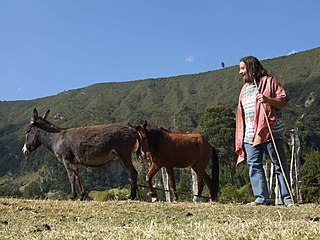
Bernhard Rosenkränzer is the founder and main developer of Ark Linux and a contributor to various other free software projects such as KDE and OpenOffice.org. To many in the Linux community he is known as "Bero", a concatenation of the first two letters of his given and surnames.
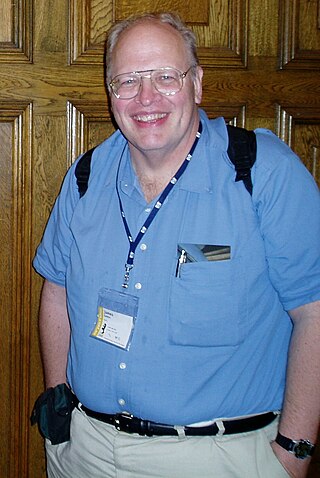
Jim Gettys is an American computer programmer. He was involved in multiple computer related projects.

Tantek Çelik is a Turkish-American computer scientist, currently the Web standards lead at Mozilla Corporation. Çelik was previously the chief technologist at Technorati. He worked on microformats and is one of the principal editors of several Cascading Style Sheets (CSS) specifications. He is author of HTML5 Now: A Step-by-Step Video Tutorial for Getting Started Today (ISBN 978-0-321-71991-1).
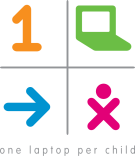
One Laptop per Child (OLPC) was a non-profit initiative established with the goal of transforming education for children around the world; this goal was to be achieved by creating and distributing educational devices for the developing world, and by creating software and content for those devices.

The Mozilla Corporation is a wholly owned subsidiary of the Mozilla Foundation that coordinates and integrates the development of Internet-related applications such as the Firefox web browser, by a global community of open-source developers, some of whom are employed by the corporation itself. The corporation also distributes and promotes these products. Unlike the non-profit Mozilla Foundation, and the Mozilla open source project, founded by the now defunct Netscape Communications Corporation, the Mozilla Corporation is a taxable entity. The Mozilla Corporation reinvests all of its profits back into the Mozilla projects. The Mozilla Corporation's stated aim is to work towards the Mozilla Foundation's public benefit to "promote choice and innovation on the Internet."

Mary Lou Jepsen is a technical executive and inventor in the fields of display, imaging, and computer hardware. Her contributions have had worldwide adoption in head-mounted display, HDTV, laptop computers, and projector products; she was the technical force behind a generation of low-cost computing, and innovative consumer and medical imaging technologies. She was named one of the hundred most influential people in the world by Time Magazine, was named in 2013 to CNN's top 10 thinkers in science and technology for her work in display innovation, and she has over 200 patents published or issued.
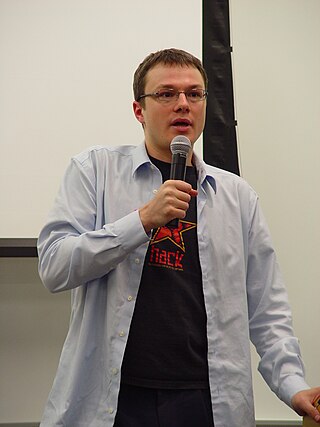
Mike Shaver is a former Engineering Director at Facebook. He is also known for his work on several open source projects. He has been involved in the development of many of the technologies that enable interactive web pages, such as the JavaScript language.
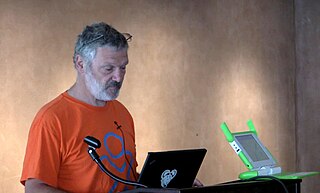
Walter Bender is a technologist and researcher who works in the field of electronic publishing, media and technology for learning. From the MIT Media Lab's founding 1985 through 2006, Bender directed the lab's Electronic Publishing Group. Previous to the lab's creation, the group had also existed in the Architecture Machine Group. The research group is one of the Media Lab's oldest and one of a few that predates the creation of the lab. While at the lab, Bender held the Alexander W. Dreyfoos Chair. Bender's research has attempted to build upon the interactive styles associated with existing media and extend them into domains where a computer is incorporated into the interaction. He has participated in research in the field of electronic publishing, and personalized, interactive multimedia, particularly including news. From 2000 through 2006, Bender was executive director of The Media Lab.
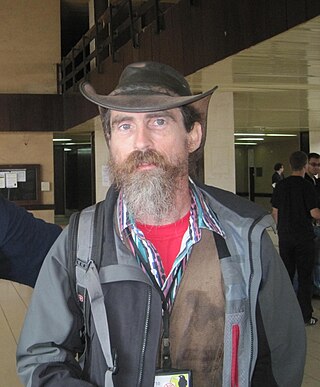
Rob Savoye is the primary developer of Gnash. He is a developer for the GNU Project, having worked on Debian, Red Hat and dozens of other free/open source software projects. He was among the first employees of Cygnus Support, which was sold to Red Hat in 2001.

Sugar is a free and open-source desktop environment designed for interactive learning by children. Copyright by SugarLabs. Developed as part of the One Laptop per Child (OLPC) project, Sugar was the default interface on OLPC XO-1 laptop computers. The OLPC XO-1.5 and later provided the option of either the Gnome or Sugar interfaces.

Pia Andrews, born 1979, is an open government leader and the Special Advisor, Digital & Client Data Workstream Lead for Employment and Social Development Canada (ESDC).

The OLPC XO is a low cost laptop computer intended to be distributed to children in developing countries around the world, to provide them with access to knowledge, and opportunities to "explore, experiment and express themselves". The XO was developed by Nicholas Negroponte, a co-founder of MIT's Media Lab, and designed by Yves Behar's Fuseproject company. The laptop is manufactured by Quanta Computer and developed by One Laptop per Child (OLPC), a non-profit 501(c)(3) organization.
Companies whose business centers on the development of open-source software employ a variety of business models to solve the challenge of how to make money providing software that is by definition licensed free of charge. Each of these business strategies rests on the premise that users of open-source technologies are willing to purchase additional software features under proprietary licenses, or purchase other services or elements of value that complement the open-source software that is core to the business. This additional value can be, but not limited to, enterprise-grade features and up-time guarantees to satisfy business or compliance requirements, performance and efficiency gains by features not yet available in the open source version, legal protection, or professional support/training/consulting that are typical of proprietary software applications.
Sugar Labs is a community-run software project whose mission is to produce, distribute, and support the use of Sugar, an open source desktop environment and learning platform. Sugar Labs was initially established as a member project of the Software Freedom Conservancy, an umbrella organization for free software (FLOSS) projects., but in 2021, it became an independent 501(c)(3) organization.

XO-3 was a design for a tablet/e-book reader intended to be developed under the One Laptop per Child (OLPC) initiative, but the project was cancelled in November 2012, replaced by the XO tablet.

Mozilla is a free software community founded in 1998 by members of Netscape. The Mozilla community uses, develops, spreads and supports Mozilla products, thereby promoting exclusively free software and open standards, with only minor exceptions. The community is supported institutionally by the non-profit Mozilla Foundation and its tax-paying subsidiary, the Mozilla Corporation.
The first open-source software project in Kosovo was the adjustment of the Open Office Packet in December 2003.















